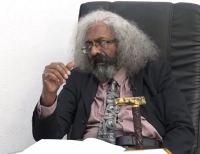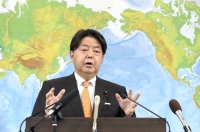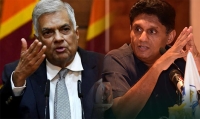The International Crisis Group (ICG) would like Sri Lanka to have a government headed by President Maithripala Sirisena and Prime Minister Ranil Wickremesinghe following the August 17 parliamentary elections so that the island nation continues its journey towards democracy, accountability and ethnic reconciliation.
In its latest report released on Thursday, the Brussels-based ICG said that the parliamentary elections offer voters the “chance to renew the mandate for change” they gave Sirisena and the United National Party (UNP) led by Wickremesinghe in January.
The Sirisena-UNP government had set a “new, less Sinhala triumphalist tone on ethnic issues and took some steps for reconciliation”, the report noted.
However, it warned that a “strong showing by the Rajapaksa-led United Peoples’ Freedom Alliance (UPFA) would complicate the President’s plans to form a broad-based national government between the UNP, smaller parties and the reformist wing of the SLFP, and place obstacles to further progress on much-needed governance reforms and reconciliation.”
Further: “Even if he cannot become prime minister, Rajapaksa’s leadership of a large Sinhala nationalist bloc in parliament could make it harder for a UNP-led government’s to act as promised on reconciliation and accountability.”
Thus, “Sri Lanka’s chance to finally start on the road to a sustainable resolution of the country’s decades-long ethnic strife, including a negotiated political settlement, depends on the outcome of the elections.”
In regard to the report of the Office of the High Commissioner for Human Rights (OHCHR) on alleged war crimes, which is to come out in September, the ICG urged the government-to-be formed to “commit to the legal reforms needed to effectively prosecute serious human rights violations suffered by all ethnic communities, including war crimes; to pursue prosecutions with adequate witness protection and international involvement; and to consult widely with victims, survivors and community groups on its longer-term program of transitional justice, including a possible truth commission.”
“To be effective, these processes will require consistent international scrutiny and participation, including OHCHR assistance to investigations and continued monitoring and reporting to the UN Human Rights Council,” it added.
(The New Indian Express)












